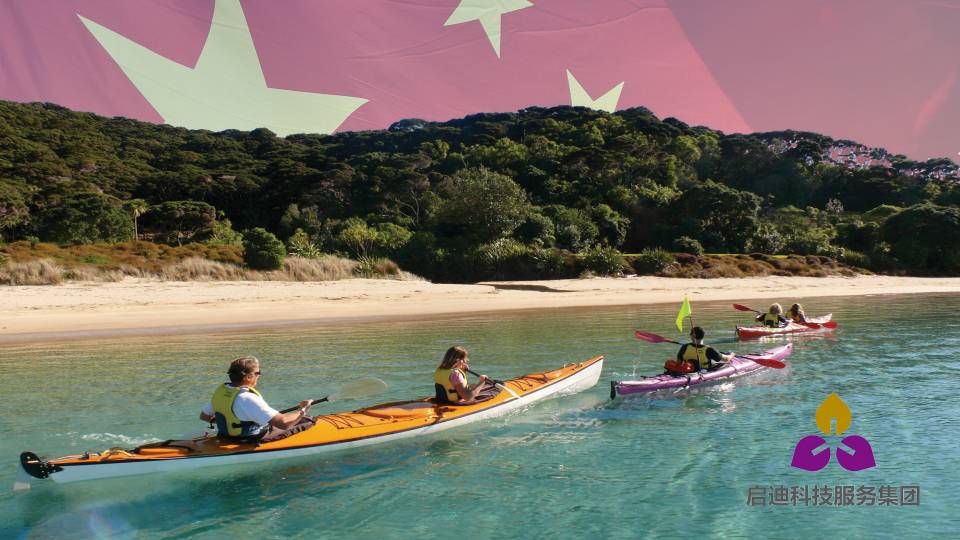NZ- Chinese firm keen to invest $1b in Far North
A Chinese company is offering to invest up to $1 billion in the Far North in everything from cultural tourism to geothermal energy.
The company, Tus-Holdings, has signed an agreement with the Far North District Council aimed at boosting ties and setting up a process for deciding which projects to invest in.
Some councillors are concerned, however, that it was signed before it could be debated at a council meeting. The reason given for the rush was that a delay could have put the offer at risk.
Deputy mayor Tania McInnes has also questioned what Tus-Holdings expects in return for its investment.
In March Far North Mayor John Carter and councillor John Vujcich were approached by representatives of Tus-Holdings, the business arm of Tsinghua University in Beijing, who were keen to invest up to 5 billion yuan (NZ$1b) in the Far North over five years.
Mr Carter referred the request to the Prime Minister's Office, which in turn referred it to the Ministry of Business, Innovation and Employment (MBIE). MBIE confirmed Tus-Holdings was a legitimate enterprise that had agreements with other councils.
On March 27, Tus-Holdings, Mr Carter and acting chief executive Colin Dale signed a joint memorandum of intent drafted by the council's in-house lawyer.
According to a council report, an "expedited process" took place, out of step with normal decision-making processes, to avoid putting a possible major investment at risk.
The areas in which Tus-Holdings was keen to invest included cultural tourism, a thermal resort at Ngawha Springs, developing Ngawha's geothermal power resources, a retirement village and "retirement tourism", training and research, and setting up a venture capital fund to encourage innovative projects in tourism, technology, film and the environment.
The memorandum makes no concrete commitments about investment but sets out the next steps both parties have to take.
At a council meeting earlier this month Ms McInnes said it was "highly unusual" to sign an agreement before it had been debated. She would have liked to know more about the company's track record first and, importantly, what Tus-Holdings expected in return for its investment.
"Obviously there's $1b on the table, but that in itself raises questions ... I have no qualms about doing business with the Chinese, Americans, whoever, as long as it's in the best interest of the ratepayer."
Mr Carter said the agreement meant the council would have a say in the company's decisions. Normally foreign firms only needed Overseas Investment Office approval before buying land or businesses, leaving local authorities powerless.
"What I like about this is that it gives us a say, potentially, in what happens in our district," he said.
The motion to adopt the memorandum was carried by four votes to five.
The council also signed a statement of intent to set up a sister city relationship between the Far North and Tengchong, a city of about 600,000 people in Yunnan province in an area known for its hot springs and volcanic activity.
In April the Northland Regional Council signed a similar Memorandum of Understanding with China Railways Zhongji Holding Group. While the agreement only sets out each party's role and expectations, it is expected to pave the way for future infrastructure projects involving Northland businesses.
Another Chinese company, real-estate giant Shanghai Cred, is planning to spend about $750 million building a resort at Carrington Estate on the Karikari Peninsula. If it goes ahead it will be the single biggest investment in New Zealand tourism infrastructure.
According to Tus-Holdings' website, the company was founded in 2000 and manages assets worth more than 100 billion yuan (NZ$20b). Its flagship asset, TusPark(Beijing), is the world's largest university science park.
A press release issued by the company stated executive vice-president Chen Xiang and his delegation were formally welcomed at Waitangi where the two sides "made deep communication over strategic cooperation and entered friendly partnership".
Mr Chen said the company already had 160 innovation bases around the world and the Far North agreement would bring new investment and development opportunities.
The press release also noted the Far North's subtropical climate and rich Maori culture.
Mr Chen was part of a business delegation that accompanied Chinese Premier Li Keqiang on a three-day state visit to New Zealand in March.






















